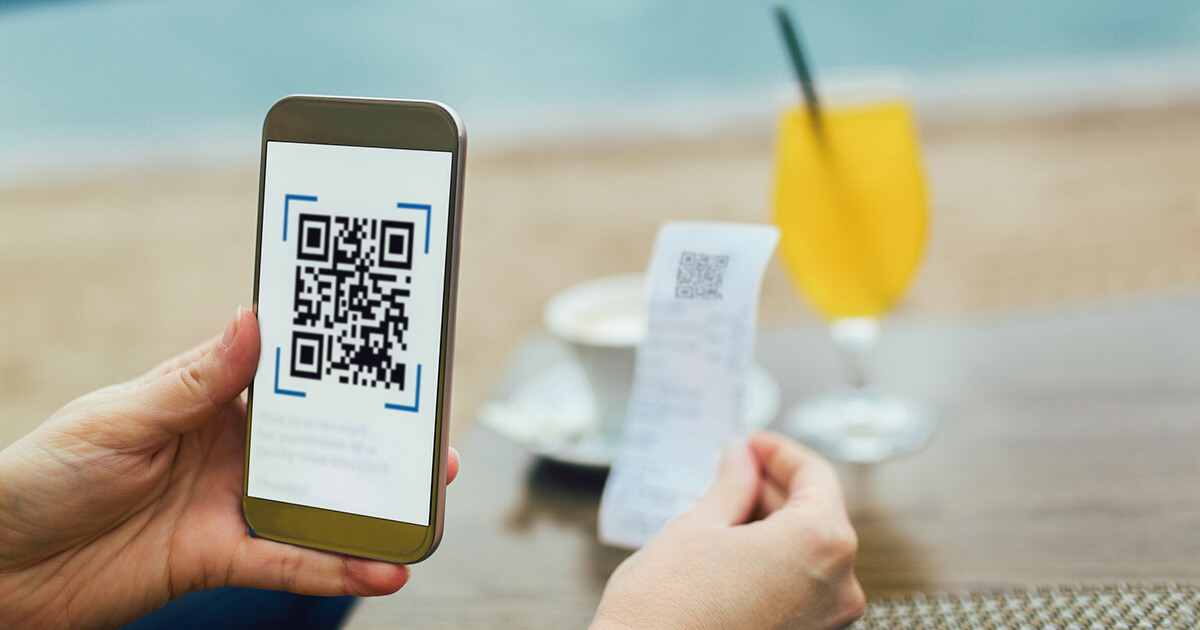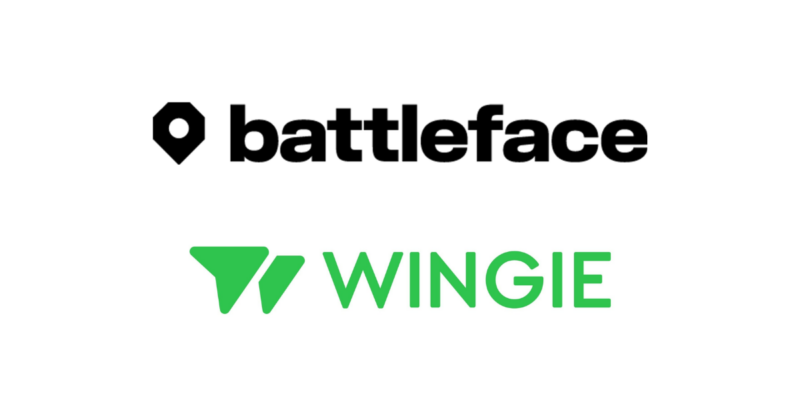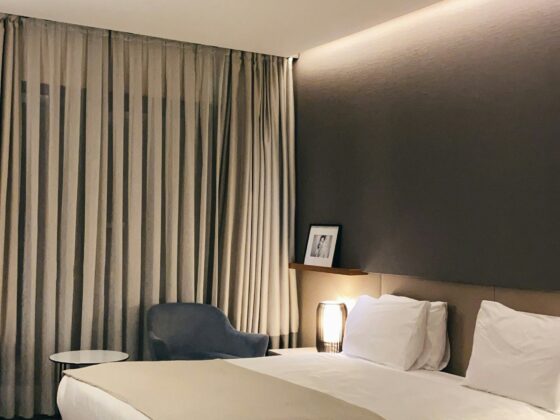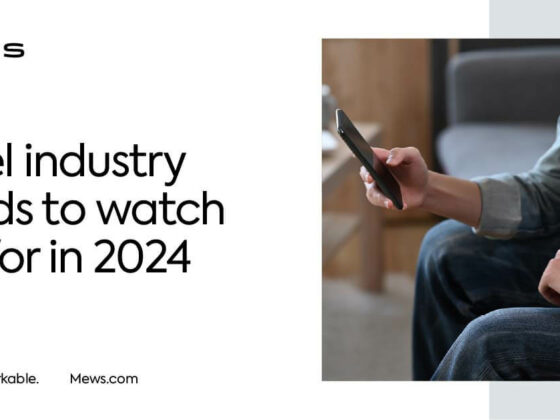
The hospitality industry has a reputation for lagging behind in its tech adoption journey. However, in the past few years, there has been a rapid acceleration of solutions as travelers become more sophisticated, with higher expectations, and hotels are expected to do more with less.
But what technology trends are fads, and which ones are here to stay?
Here we explore 13 of the latest technology trends and their impact on properties around the world.
1. Cloud-native tools with open APIs
Replacing legacy, on-premise PMS (property management systems) with cloud-based applications is not a new trend, but the importance of open APIs has become increasingly evident.
With a mass influx of point solutions targeted at solving specific problems (ie., point of sale or CRM), hoteliers can be left with a fragmented and inefficient IT system. For example, if your RMS (revenue management system) is not integrated with your PMS, you may find yourself manually updating room rates, negating the efficiency gains these technology solutions are meant to provide.
While these point solutions are crucial in managing hotel operations, hoteliers must invest in cloud-based solutions with open APIs that allow for seamless two-way integration with the PMS. The free flow of data between solutions avoids data silos and creates an integrated ecosystem of apps with consistent and easily accessible insights.
2. RMS for all
A significant result of the growing integration in hotel technology is the growing adoption of revenue management systems. While revenue management technology has been available since the early 2000s, it’s now becoming more accessible to hotel properties of all sizes, not just big chains.
Klaus Kohlmayr, Chief Evangelist and Development Officer at IDeaS, notes that the volume of data processed by RMS providers has more than doubled since 2018. Independent hotels, despite having fewer guest rooms and less complex operations, are recognizing that these systems improve pricing strategies, occupancy rates, and Revenue Per Available Room (RevPAR).
3. Leveraging AI language models
Artificial Intelligence is making inroads in hotel tech, particularly through LLMs (Large Language Models), which generate human-like written interactions. LLMs are being used to create draft responses to online reviews, personalize ad retargeting campaigns (for example, in Cloudbed’s Digital Marketing Suite), and power chatbots on hotels’ websites. These AI-driven chatbots not only automate responses to common inquiries but also help streamline the booking process.
Looking ahead, hotel and airport executives anticipate that AI will have the most profound impact over the next five years in areas such as guest processing, staff and resource management, and operational resilience.
4. Digital check-in & keyless entry
Mobile check-in and keyless entry streamline the whole check-in experience by allowing guests to upload ID documents (using facial recognition) to the hotel app on their smartphone before arrival and bypass the front desk completely with digital key cards.
This new technology not only reduces administrative tasks for front desk staff (and lost room keys) but also increases upsells with messaging automation and offers. For guests, it means less time spent at the front desk and more control over their stay.
Digital check-in and keyless entry were driven by the need for social distancing during the pandemic but are not going away. According to 2023 h2c’s Digital Hotel Operations Study, 34% of chains adopted this technology with an equal percentage planning to do so in the future.
Contactless options don’t equate to a contactless experience. Data from Deloitte shows that a fully contactless solution may be premature. A growing number of travelers prefer a blended digital-human check-in experience. The key is reducing friction while meeting guest needs to deliver a stellar hotel experience.
5. Guest experience hubs
Digital check-in and keyless entry are just two ways to provide a streamlined and personalized experience to guests. Another example is a digital guestbook or concierge with information such as check-in and check-out times, wifi password, breakfast hours, activities, upgrades, and more.
Traditional paper-based flyers left in hotel rooms can be replaced by digital versions that are always accessible, provide much more information, and are interactive – meaning that guests can message the front desk or make a purchase all in one spot.
Your mobile app or guest experience platform should be tailored to your guest preferences and demographics. Identify what’s important to your target audience and personalize the offerings to increase profitability.
6. Unified inbox
There is a broader trend in hospitality focused on engaging guests throughout their entire journey, whether it’s to enhance their experience, address issues, or promote additional services.
An essential aspect of this engagement is making it as easy as possible for guests to contact the hotel through various channels, such as SMS, email, WhatsApp, Facebook Messenger, Google Business Messages, chatbots, or online travel agencies. However, many hotels still face challenges in this area. According to h2c’s report, fewer than half of the surveyed hotel chains utilize messaging tools like WhatsApp, and only 35% have a chatbot on their website.
To support this trend, unified inbox tools have been developed to aggregate messages from all channels into a single dashboard, helping hotels read and respond to queries more quickly and effectively.
7. Internal communication going digital
Engaging with guests also means promptly resolving any issues they encounter during their stay, which requires efficient internal communications.
Traditionally, if a guest reports a problem, such as a broken shower, they would pick up the in-room phone and call the front desk or visit in person. The front desk staff would then use a walkie-talkie to contact the maintenance team while logging and tracking the issue in a separate system.
Digital tools can streamline this fragmented process significantly. For example, Whistle for Cloudbeds allows hotel teams to create channels to send messages and trigger workflows based on guest requests.
Discover how Cloudbeds can help you improve communication.
8. Conversational commerce
More messaging options translate to more interactions with guests and more opportunities to upsell. This is the essence of conversational commerce—a strategy where hotel staff or virtual assistants use guest interactions to gauge purchase intent and make personalized offers based on detailed segmentation.
Examples of conversational commerce might involve an AI-powered chatbot encouraging website visitors to book directly with the hotel or a hotel representative recommending their spa or restaurant to a guest asking about local amenities or room service through the in-app chat.
9. AI-based translation technology
Guest engagement is increasingly supported by AI-powered translation technology. Communicating with guests in their native language is always best: as a survey of nearly 10,000 consumers across 33 countries found, 65% prefer content in their own language and 40% won’t buy in other languages.
The development of machine translation based on LLMs has dramatically improved the accuracy and naturalness of translated texts, making them sound more human-like.
For example, translation technology can be used on your hotel’s messaging platform to translate requests from and to the guest’s preferred language in real-time so you can quickly answer questions and convert the website visitor into a guest.
10. Integrated payment processing
Integrated payment processing is ripe for rapid adoption in the hotel industry. Data from the h2c’s report shows that while hotel chains rate integrated payment solutions as very important (scoring 8.8 out of 10), only 34% have implemented them.
Integrated payments are particularly important for hotels, where guests buy additional services through different channels at different times. Consider a guest who books a hotel room through an online travel agency (OTA) and uses the hotel’s spa and restaurant during their stay.
The OTA, operating under an agency model, forwards reservation and credit card data to the hotel, but the guest pays the hotel directly. Because the OTA’s payment gateway is not integrated with the hotel’s system, hotel staff must manually enter the data, risking significant issues from even a single mistyped digit. Additionally, because the spa and restaurant have their own payment systems, calculating TRevPAR (total revenue per available room) requires hours of reconciling disparate payments.
An integrated payment system can streamline this process by consolidating all payment channels into a single platform. This not only simplifies operations but also offers guests multiple payment options, such as contactless payments or transactions through the hotel app, eliminating the need for repeated credit card swipes.
11. End-to-end reputation management
A Cornell University report found that by encouraging guests to leave reviews and responding to them, hotels can boost ratings, sales, and revenue. However, with reviews scattered across numerous online platforms, managing this process can be time-consuming.
To streamline operations, hoteliers are turning to tools that aggregate reviews in one place and use AI-based writing assistants to craft better responses in less time. Other tools allow hotels to take a proactive approach to reputation management by soliciting guest feedback during their stay. This allows hotels to address any concerns or issues before they result in negative reviews.
12. Google Analytics 4 (GA4)
GA4 represents a significant evolution in Google’s analytics and advertising platform. Unlike its predecessor (Universal Analytics), it shifts focus from website visits and sessions to what users actually do once they end up on your website and app.
This new approach relies much more on machine learning to analyze guest data and predict conversion probabilities. With these insights, hotel marketers can better correlate users’ behavior with conversions, identify key customer segments, and create targeted and effective Google Ads campaigns and marketing strategies.
For example, if data shows that users who watch a video on your hotel’s website are more likely to book, you can increase bids for ads targeting users who have watched the video.
13. Internet of Things (IoT) technology
IoT involves the connection of objects through wi-fi and sensor-based apps. IoT room technology is pivotal in what is commonly referred to as ‘smart rooms’ or ‘smart hotels.’ These properties incorporate devices that communicate with each other – making them smart.
In practice, hotels can use IoT in just about every area of operations. For example, IoT sensors can be installed in rooms to alert housekeeping when a guest has left their room. Guests can use voice control with in-room devices that act as a virtual concierge to provide personalized recommendations. Smart lighting and temperature control are also rising in popularity, with guests able to control room temperature and lighting levels with an app on their phones.
These in-room features can make hospitality businesses stand out, improve operational efficiency, and improve guest satisfaction.
Harnessing the power of hospitality technology
Based on these trends, you may have noticed that AI and its impact on the customer experience are among the most important advancements impacting the industry today. Finding ways to personalize the guest experience and reduce friction for hotel guests and hotel staff is one of the main roles of emerging technologies.
See how Cloudbeds can help modernize your hotel’s operations.









